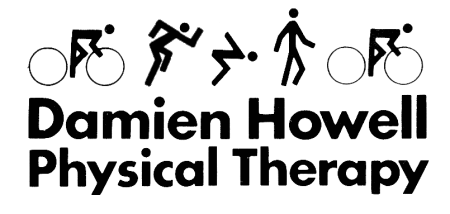Everybody has got their guy

Paul Ingraham writes a blog www.saveyourself.ca. Paul is a health science journalist and a former massage therapist. In a recent blog entitled “Every little thing a nice physical therapist does is magic”, he presented an interesting concept that “every body’s got their guy”.
Individuals with chronic pain often have a healthcare practitioner that is their favorite that they “swear by”. It could be a Physical Therapist, Chiropractor, or Massage Therapist who is who they go to for help with their chronic pain or recurring injury. Their guy or gal is the best thing since sliced bread in managing their problem. Unfortunately, often the individual continues to have chronic pain or recurring injury. Paul points out that there is a rift between how someone feels about their healthcare provider and the objective outcome of the intervention. The individual can feel positive about the treatment but they still have pain, still have impairment, and still have dysfunction.
Ingraham writes their symptoms might be reduced, but they still have “bad back”, they are still nervous, they still have days when their back “goes out”, they have a list of verboten activities they are perpetually unable to wrestle with their spouses, give airplane rides to their kids, or snowboard, or run like they used to, or whatever, all for fear of a fresh attack of symptoms.
A systematic review of literature (Husch, JM 2010) found that people liked the Physical Therapy treatment provided whether it worked or not. Treatment outcomes were infrequently and inconsistently associated with patient satisfaction.
As a physical therapist that has practiced for many years I agree with Paul Ingraham’s observation. There are times when a client is overly enthusiastic about how pleased they are with the service they received, yet when objective unbiased measures of outcomes are gathered there is small or little actual improvement.
Quirks of human perception, interpretation, and memory often make symptoms improve when they haven’t. A healthy dose of skepticism is needed when patient satisfaction is used as accountability measure.
A clinician who practices evidence based medicine recognizes this cognitive dissonance can occur. There can be multiple explanations why it occurs. The “Halo Effect” can be at work. The patient perceives his/her practitioner as a good healer (smart well trained, had-working, confident, and compassionate). Under such circumstances, a social norm of reciprocity may persuade the patient to rationalize treatment success.
An evidence based clinician will recognize the positive results following an intervention may be a result of a “Halo Effect”, and will continue to intervene until a real objective treatment effect occurs.
Even if your guy or gal is the equivalent of the Horse Whisperer a critical self analysis is prudent. Is the therapy really helping? Or do you just like your guy or gal. Ideally it is both. If your guy or gal is not really helping let him/her know, or fire him/her. In my years of providing Physical Therapy I have worked with several Physical Therapists considered to be an Oracle. Most gurus have a large ego, so if your guy or gal is not helping and you tell him/her, do not be surprised if he/she does not hear you. Tell your guy or gal you are satisfied with his/her effort, but that you are still having problems. The best Oracle seeks out truth even if it means his/her work failed. If I am your guy and you are not getting better I want to know, tell me.
Damien Howell Physical Therapy – 804-647-9499 – Fax: 866-879-8591 At-Home, At Office, At Fitness Facility – I come to you, I do home visits Damien@damienhowellpt.com
